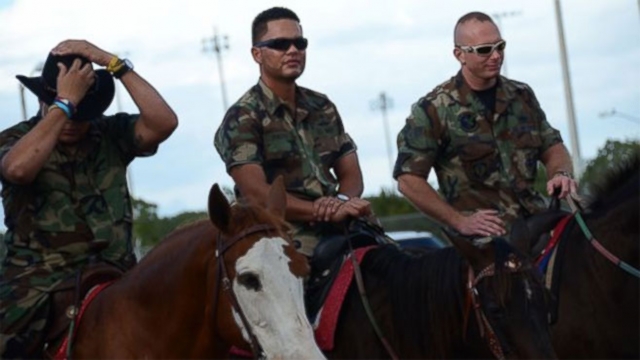
The majority of us have fantasized of being a cowboy or cowgirl and traveling across the Wild West on our very own intelligent, quick, and obedient horse. A lot of the classic Westerns taught us that a cowboy’s best friend may be his horse and that their bond was based on mutual trust.
The premise for the increasingly well-liked equine therapy for soldiers suffering from wounds, both physical and mental, is the truth of these fictitious films, which is that horses are noble, beneficial, and good for the spirit. Through Victoria’s Equine Therapy, veterans and their families can frequently ride and train. Hamer Equine Assisted Learning (H.E.A.L.) provides psychologically and physically secure horse experiences. We provide individuals the chance to examine any problems they may be having or just to relax in the presence of the horses. learn more about what we do.
What makes these programs so effective in aiding injured soldiers? Here are seven benefits of equestrian riding for veterans.
Right now, you are there. The world outside seems to vanish when you are riding a horse. You must concentrate your efforts and use deliberate directions and body language. According to experts, horses are able to detect the rider’s emotional state; they can tell if you are feeling confident and will only respect you if you are confident in yourself. It encourages you to rediscover your own sense of assurance in delegating authority and taking the lead. The horse will follow you if you do.
It is serene. The noises of horseback riding are frequently quiet and rhythmic, whether you are trotting around an arena or going on a trail ride. You can feel your body moving in unison with the horse’s movement when its hooves strike the ground as it breathes or whines. Loud, unexpected noises cause anxiety in many veterans who are dealing with PTSD. Others merely want to get away from the stress of a military base or urban daily life. A random whine or the wind blowing past while you trot can help you relax and feel at ease.
It’s something novel and distinctive. Many veterans have never ridden a horse before. The opportunity to learn something new and immediately satisfying can help people escape the drudgery of daily life, even if they are specialists in their military speciality or have previously led challenging missions. A novice rider can quickly pick up the methods and abilities necessary to become an effective horseman with the correct tutor and an open mind. The animal waits for your command and, if it is given appropriately, will comply with it without any pressure or expectations on their part. These modest accomplishments can significantly contribute to regaining confidence and experiencing happy times.
It’s a bodily thing. The actions necessary for equestrian riding involve the complete body, from saddling the horse to mounting, riding, and subsequently grooming. Even if it seems easy enough, riding for a long time is surprisingly physically taxing; the next day, your back and leg muscles will feel it. A veteran can take a mental vacation from the constant worrying, anxiety, and hyperawareness that frequently accompany PTSD with the help of this physical activity, attention, and connection with the animal. Also, getting some fresh air is always good for the body and mind.
It’s a brand-new partner. Anyone who has served in the military for a significant amount of time is aware of the value of having a partner or “buddy” both during training and when serving in combat. When veterans leave the military, they can discover that component of civilian life is absent. Knowing that someone is watching out for you and striving for the same goal is a highly valued item in the military. Equine therapy involves working with horses over a period of time to develop a new partner relationship with another living being. You cooperate to achieve objectives, develop trust, and take care of one another.
It creates fresh memories for you. Veterans may be battling with acute and vivid memories from the battlefield as they attempt to reintegrate into civilian life. Replace them with fresh, happier events and memories, according to experts, in order to help reduce these anxiety-inducing recollections. Giving a veteran a new mental “place to go” in stressful situations, such as having them visualize their last ride across a tranquil field, might be a coping method to help them get through a strong emotion.
It’s just enjoyable. You can’t help but smile when you start your first gallop, encourage your horse to run even faster, or perhaps even jump over an obstacle. The escape from daily life on the back of a good horse can help heal a war-weary mind and body and can give a veteran hope that they will once again experience the joy and happiness they hoped to return to after battle. Equine therapy has got to be one of the most enjoyable types of therapy a person can engage in.